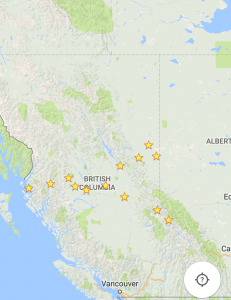The Women North Project: Addressing the Health Needs and Challenges of Northern Women
The Canadian health sector has often overlooked the unique needs of northern communities, forcing residents of the north to take additional steps and/or incur additional costs to receive the same level of health care as those who live in southern Canada. Multiple studies and reports by researchers and government agencies demonstrate that people living in northern British Columbia experience poorer health than their southern counterparts on a variety of indicators such as:
- life expectancy
- rates of violence,
- access to family doctors
- access to resources and services
- environmental determinants of health
- and more.
These poor health indicators put northern women in a vulnerable position, especially when factors such as geography, climate, and issues related to age, culture, race, sexual orientation, and socio-economic status are considered. Such factors tend to isolate women further by creating a divide within their own community.
All of the health-related problems mentioned above, as well as the vast distances and cultural differences between northern communities, cause communities to be isolated from each other and women to be isolated from their own communities.
Before the creation of the Women North Network, there was no overarching voice discussing the health problems faced by northern women. With government-enforced cutbacks, the social security net that did exist began to shrink. This made it more crucial for there to be a space where northern women could share information, coordinate action strategies, and start to form a unified voice for health policy changes.
Networking for Change
Northern FIRE recognized this problem and responded to the issue by initiating The Women North Project, a community development and research project that aimed to strengthen connections between women across the north. Funded by the Status of Women Canada, with additional support from the University of Northern British Columbia (UNBC) Centre for Teaching and Learning, the project focused on creating a network of women and women’s organizations in northern British Columbia. The Women North Project commenced with a series of community gatherings to discuss health concerns. More than 100 women from eight communities across the north participated in the Project, with a regional gathering held in Prince George.

A photo of the women at one of the community gatherings
Founding Communities

The communities involved were:
Mackenzie, Robson Valley
(Dunster, McBride and Valemount), Fort St. John, Dawson Creek, Chetwynd, Fort St. James, Prince Rupert, Prince George, Terrace, Burns Lake, Smithers and Houston.
